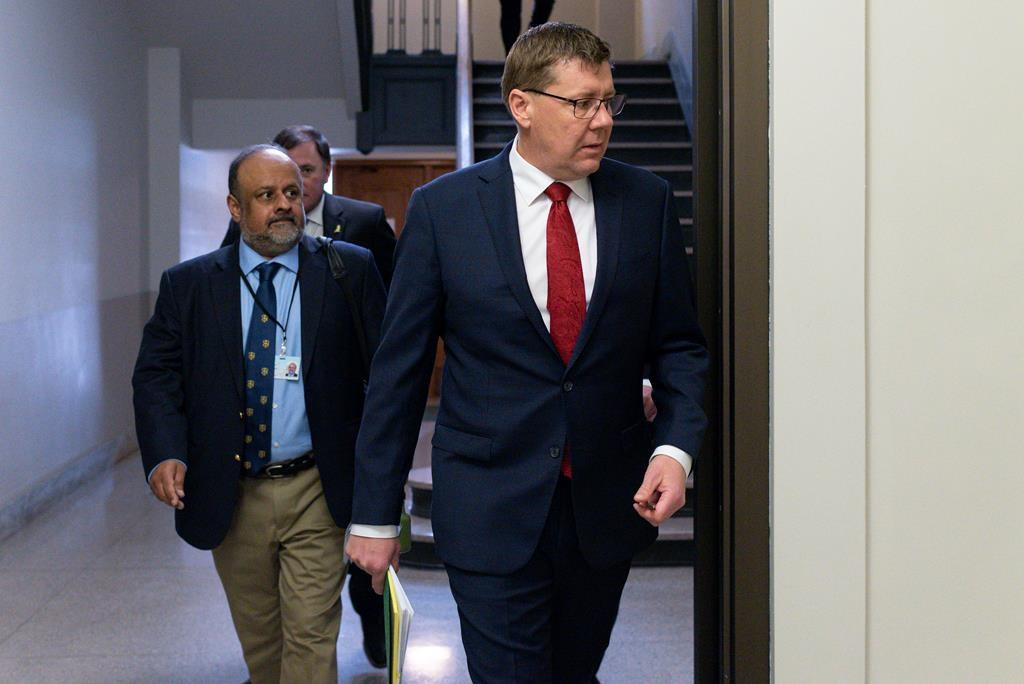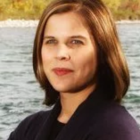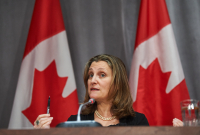Support strong Canadian climate journalism for 2025
Saskatchewan declared a provincial state of emergency Wednesday as the number of COVID-19 cases in the province doubled to 16.
Premier Scott Moe said it's a critical time for the province to limit the spread of the novel coronavirus.
"We will get through this and we will get through this together," Moe said during a news conference. "But we all have the responsibility and we all have to take that personal responsibility seriously.
"We have to self-isolate."
Health officials reported that 15 of the 16 people infected were well enough to self-isolate at home. One was in hospital for reasons not related to the positive COVID-19 test.
Two of the cases have been confirmed at the national laboratory in Winnipeg.
"Our cases have doubled in a day," said Dr. Saqib Shahab, the province's chief medical officer of health.
He said all the cases are still travel-related, but warned it's going to get more difficult to prevent community transmission as people return from holidays.
"We are going to see a lot of people coming back," he said. "It's essential now that anyone who comes back self-isolate for two weeks, because we want to minimize any chance of community transmission.
"We will see community transmission and we will try to control that as best we can."
Shahab said Saskatchewan residents need to ensure they are practising social distancing and stay home whenever possible.
"It's a time to hunker down and calm everything down for a while," he said. "Hopefully that will slow any risk of this taking off more quickly than it should."
Moe said the state of emergency will give the government broad powers to bring in measures such as limiting travel to or from a community or region or directing that equipment be deployed.
The government, with Shahab's advice, also made a number of new orders to reduce the risk to residents.
The orders include prohibiting public gatherings larger than 50 people, including in bars and restaurants, which must maintain a social distance of one to two metres between customers.
Shahab said the 50-people limit is a guideline and that residents should consider restricting their group interactions to even fewer.
Retail spaces, which include grocery stores, pharmacies and gas stations, are exempt.
Gyms, fitness centres, casinos and bingo halls are also to close until further notice.
Moe said daycare centres should also prepare for further restrictions, and that bars and restaurants may close completely.
Residents are asked to limit non-essential travel outside Saskatchewan, with the exception of people who live in border communities and are commuting for work.
In addition, Saskatchewan's health authority will be discontinuing all non-urgent and elective surgeries, procedures and diagnostics starting Monday.
Officials said that will allow nurses and other staff to be redeployed and ensure that medical supplies and personal protective equipment are available when needed. It will also reduce risk of further exposure to care providers and patients.
Cancer, urgent and emergency surgeries are to continue.
Moe stressed that people might be endangering the lives of others by visiting with their neighbours or elderly family members.
"I know this is completely counter-intuitive, especially in our province," he said. "In times of crisis, we are a community and we pull together as one. We've shown that so many times.
"But today, pulling together means we need to stay apart."
This report by The Canadian Press was first published on March 18, 2020






Comments
Saskatchewan medical facilities have been ineffective and hazardous for years. I hope they set up testing elsewhere, without crowding the patients.
The doctor is himself infected with the virus because he went curling in Edmonton. He's hanging close to the Premier in the photo dated March 18. Hmmmm